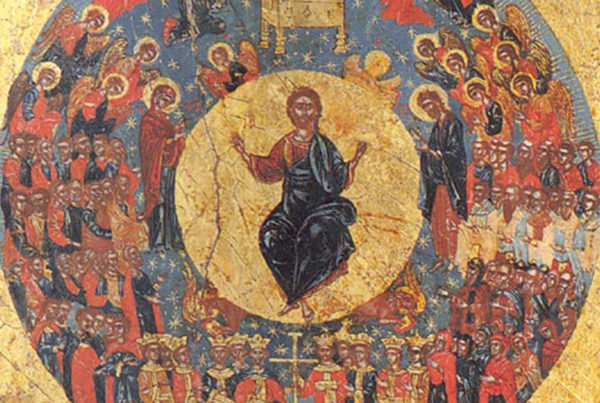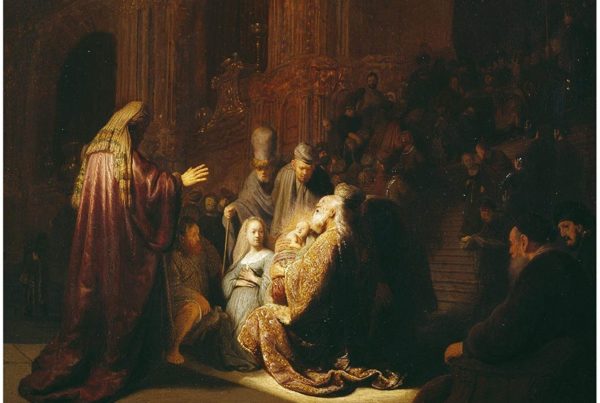All right… I’m like REAL busy right now so I have to keep this short.
Every so often you run into a book or an author that absolutely rocks your world and takes his or her place at the top of your “awesome” list. That just happened to me again, and for it I am grateful. I love running into a new “mind” to respect and who’s work I can really enjoy.
Let me introduce you to David Bentley Hart. I ran into Hart’s work through the blog of Roger E. Olsen and a review that Olsen wrote of Hart’s book “Atheist Delusions: The Christian Revolution and its Fashionable Enemies” a little more than a month ago. (Click here for that post.) Hart is an Eastern Orthodox theologian, philosopher, historian, cultural commentator… you name it… and is regarded by many as one of America’s finest theological minds.
In brief – I concur.
Rarely do you find someone with as broad and deep (and integrated!) an understanding of dogmatic and historical theology, Western history, the arts, sociology and culture, philosophy and metaphysics, etc., as Hart. His level of erudition is really shocking. Not only that, but its hard to find someone who writes with Hart’s style. At once dense and, quite often, beautiful, Hart does things with words that most of us writers only dream of. Just amazing.
But even more impressive – and to the point about the book, Atheist Delusions – rarely, at any level of Christian literature, do you meet someone who’s combination of erudition and eloquence makes it possible for them to brush away the (sometimes imposing) arguments of folks from the New Atheist camp as though they were a bunch of ranting, uneducated junior highers.
And yet, that is EXACTLY what Hart does in this book. The basic argument of the book runs like this:
- The New Atheist camp’s core claim is that religion (particularly the ethical monotheist brand, and even more particularly, Christianity) has been and is currently responsible for the world’s worst evils
- That being the case, and since religion is entirely logically incoherent to boot, religion should be forsaken in favor of a pure scientific rationalism in the service of a brighter tomorrow for humanity
- These arguments (and the books that contain them) gain traction in our culture largely because MOST people are entirely ignorant of the ACTUAL fact of the impact that Christianity made on Western civilization when it did erupt upon it back in the first century…
- When one does in fact look at the history, it is clear that far from suppressing reason, science, human rights, and the like, Christianity actually provided the fertile soil out of which these things flourished (his look at the history is quite stunning on this point) – it ACTUALLY DID create a “new humanity”, and we all are the beneficiaries of it. It was and remains the greatest ACTUAL “revolution” in human history.
- A crucial reason that we are unable to SEE that impact is that we live in the world that that impact DID create… in other words, you can’t see the forest when you’re in it – at least if no one reminds you that you’re living in a forest (as opposed to a desert or a prison)
- And if and when Christianity DOES recede from Western culture at large, there is no logical reason to suppose that our civilization will not descend either into banality (best case scenario) or barbarism (worst case scenario)
I really, REALLY wish I could go into more detail. But I can’t. Hart’s work felt to me like a combination of G. K. Chesterton’s “Everlasting Man” (particularly in how he tells the story of Christianity’s impact on Western Civ) and C. S. Lewis’s “The Abolition of Man” (particularly in his analysis of what happens when the human will gets finally unmoored from transcendent values), written for an audience living during the waning of Christianity’s influence upon Western culture – the 21st century.
I cannot recommend Atheist Delusions more highly. Tough sledding in certain parts. But incredibly rewarding. A “taster” for you as I close this entry:
The ambition to refashion humanity in its very essence–social, political, economic, moral, psychological–was inconceivable when human beings were regarded as creatures of God. But with the disappearance (following the Enlightenment) of the transcendent, and of its lure, and of its authority, it becomes possible to will a human future conformed to whatever ideals we choose. This is why it is correct to say that the sheer ruthlessness of so much of post-Christian social idealism in some sense arises from the very same concept of freedom that lies at the heart of our most precious modern values…The most pitilessly and self-righteously violent regimes of modern history–in the West or in those other quarters of the world contaminated by our worst ideas–have been those that have most explicitly cast off the Christian vision of reality and sought to replace it with a more “human” set of values. No cause in history–no religion or imperial ambition or military adventure–has destroyed more lives with more confident enthusiasm than the cause of the “brotherhood of man,” the postreligious utopia, or the progress of the race. To fail to acknowledge this would be to mock the memory of all those millions that have perished before the advance of secular reason in its most extreme manifestations. (pp107-108)
Enjoy.




Have been very curious about this book and now I really want it. Is the language understandable for a layman as myself?? Anyways thanks for the review, miss you man!